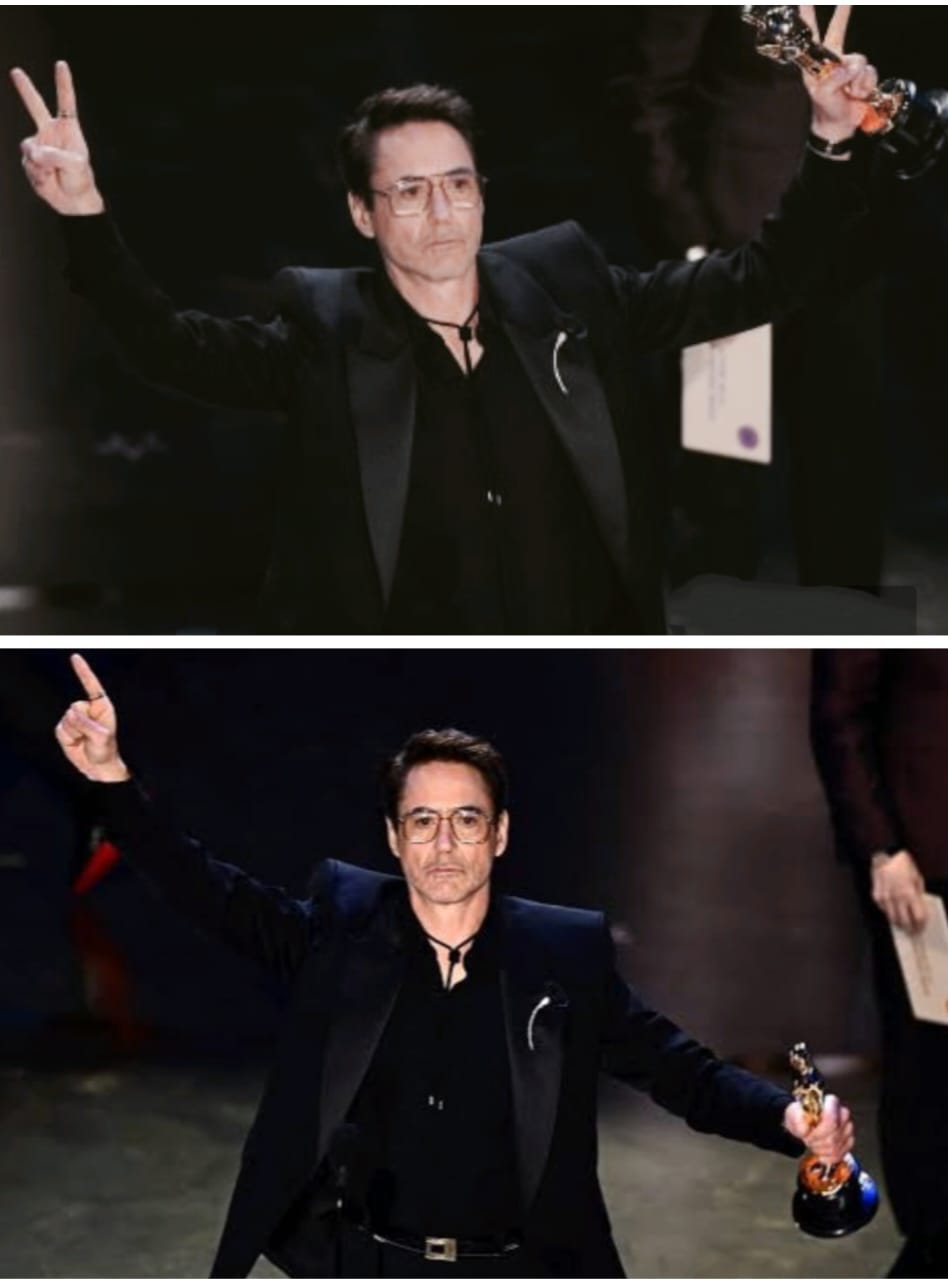“Decoding Supporting Roles: Robert Downey Jr.’s Oscar Win and the Ambiguity of 96th Academy Awards 2024”

Oscar for Best Supporting Actor went to Robert Downey Jr. recently for his performance in Christopher Nolan’s “Openheimer.” Downey joked as he accepted his trophy, saying, “I’d like to thank the academy and my terrifying childhood for this honour.” This strange accomplishment, which marks Downey’s first Oscar win and his third nomination, clarifies the Academy’s ambiguous rules for the two supporting actor categories.
96th Academy Oscars Awards 2024 win Robert Downey Jr
Downey has delivered a stellar performance in “Openheimer,” balancing all his anxieties and subtle charms with finesse. Yet, Downey’s part in “Openheimer” is arguably the least crucial aspect of the film. It’s a bureaucratic subplot about the character of Louis Strauss attempting to get his appointment as Secretary of Commerce approved by the Senate decades after the creation of the atomic bomb. While you can read thematic significance into the Strauss segments of “Openheimer,” they contain much less emotional resonance compared to the grand, tragic narrative of bomb-making.
Tonight, Devin Joy Randolph, who won the award for Best Supporting Actress, finds herself in a similar situation. Randolph, portraying the role of Mary, the school cook in “The Holdovers,” works her character to the fullest extent despite being a complete deviation from the script. While Mary is the most written character at the film’s center, Randolph elevates her into a poignant human through her strong presence.
Also Read | Gaami Review And 1 Day Collection : Released New Telugu Movies Gaami as a Gift on the Occasion of Mahashivratri 2024
Both wins function as a sort of case study. They ask: do the supporting categories reward performance quality alone, overlooking everything else? Or do they reward performances based on how well they support a larger narrative? Historically, the Academy has struggled to reach a consensus on how to answer that question.
Defining the supporting categories is difficult, and the possibility of controversy is high, making Downey’s second somewhat contentious nomination in this category. (He was previously nominated in 2009 for “Tropic Thunder,” a film for which he wore blackface.) Some ambiguity also lies in Oscar’s design. Academy rules state that any actor can compete in both the lead and supporting categories, and voters from the Academy’s acting branch can individually decide where each performance falls.

This ambiguity particularly leaves the supporting categories vulnerable to category fraud when studios enter actors into the supporting category who are clearly leads to give them a better shot at winning. In 2018, with “The Favourites,” there were three clear lead actresses, but to prevent vote-splitting, the studio entered Olivia Colman for Best Actress and Emma Stone and Rachel Weisz for Best Supporting Actress. (Fun fact: at the time, Colman didn’t have an Oscar, but Stone and Weisz did. Colman won that year after moving away from her co-stars’ path.) In 2016, “Fences” was a two-handed game. Viola Davis and Denzel Washington were almost equally divided, but Washington was nominated for Best Actor and Davis for Best Supporting Actress.
Also Read |“Google Doodle Celebrates ‘Flat White’: A Historical Journey from Origins to Oxford Recognition in 2024”
On the flip side, some nominated for Best Supporting Actor are barely seen in the film they win for. In 1959, Hermione Baddeley was nominated for “Room at the Top” for just two minutes of screen time, while Beatrice Straight was nominated for “Network” in 1977 for just six minutes. Recently, Judi Dench won a notorious Best Supporting Actress award in 1999 for her eight-minute role as Queen Elizabeth in “Shakespeare in Love.” In her acceptance speech, Dench cheekily remarked about the Oscars, “I feel that I should only get a little bit of it for about eight minutes on screen.”
Screen time controversies become particularly educational when we see instances where they’re absent. Like Dench in “Shakespeare in Love,” Viola Davis in “Doubt” (2008) appears for just eight minutes in total. Yet Davis’s performance is so nuanced, expressive, and impactful with shades of ambiguity and moral compromise that it brings Doubt to life in a way that makes her nomination for Best Supporting Actress hardly contentious. To this day, her work in Doubt is considered one of the great short performances.
Davis’s eight-minute nomination is remembered as a win, while Dench’s eight-minute win is remembered as one of Harvey Weinstein’s machinations, indicating that people care less about how long a supporting actor is on screen than they do about the impact they have. In this strange, nebulous category, what kind of impact you can make in supporting a big story matters more than how much screen time you have.







2 thoughts on “Decoding Supporting Roles: Robert Downey Jr.’s Oscar Win and the Ambiguity of 96th Academy Awards 2024”
super
nice